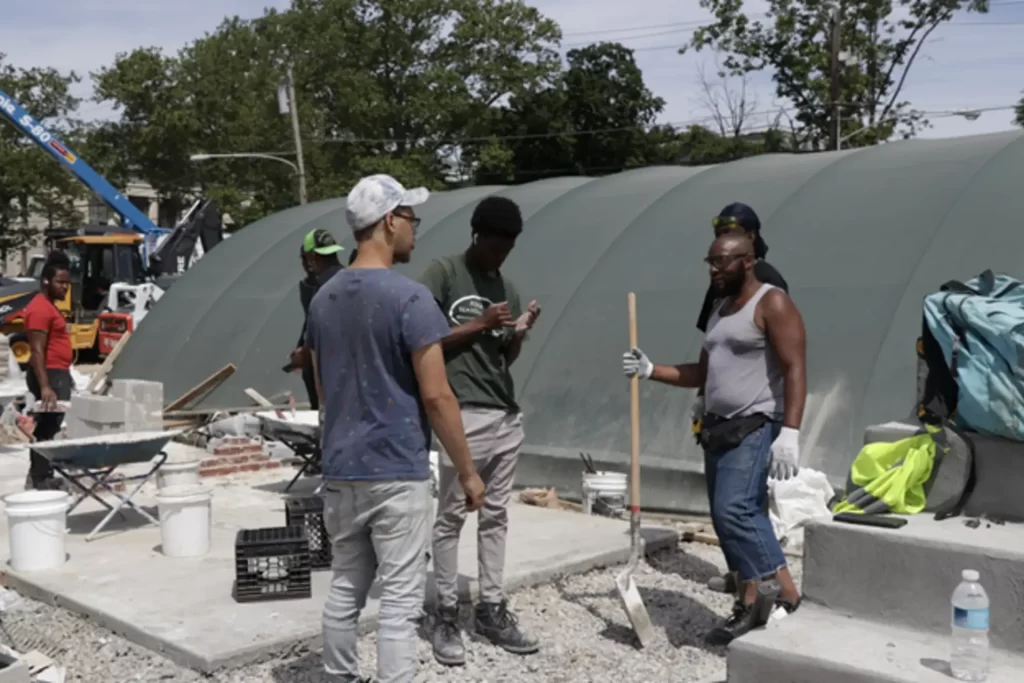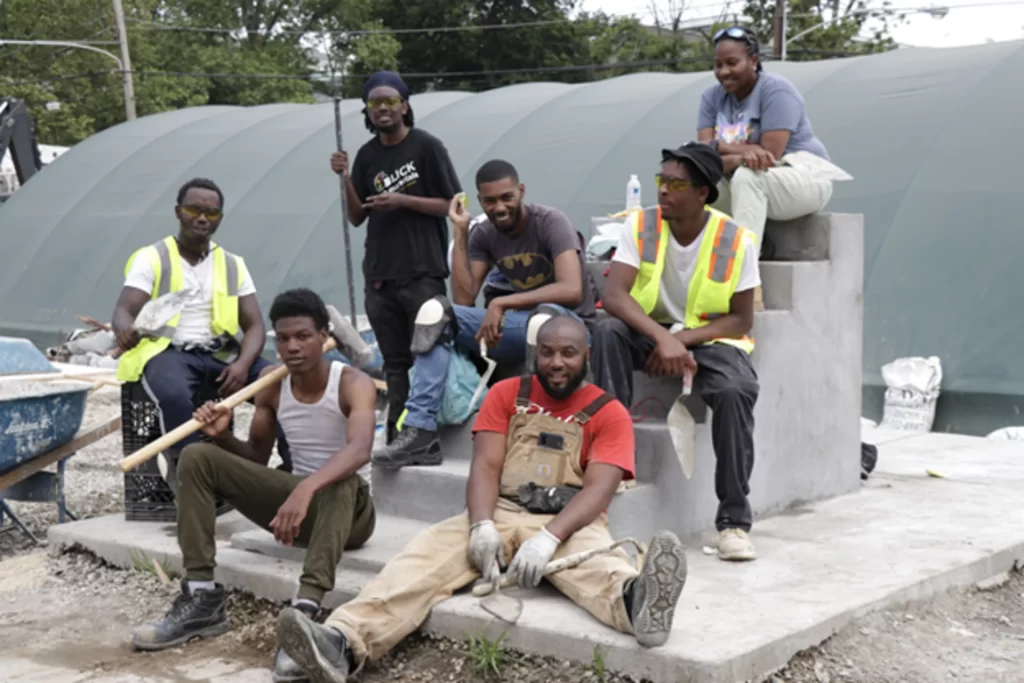Construction job is the craft of creating structures out of discrete pieces, which are frequently built of concrete, brick, or stone blocks. This trade has been practiced for many years and is still in high demand today. Jobs in the masonry industry cover a range of businesses, including bricklaying, stonemasonry, and concrete masonry. It is essential to discuss various construction jobs and their contributions.
Possibly bricklaying is the most typical masonry work. Bricklayers use bricks and mortar to construct walls, chimneys, and other construction work. Bricklaying calls for a lot of physical stamina because the bricks can be relatively heavy and accurate because they must be placed out in a specific pattern to ensure structural stability.
Setting up a foundation is the first stage in bricklaying. This entails clearing the space and laying the foundation for a level surface. During construction training the masons start the bricklayer work by laying the bricks after the foundation is in place. Before applying the bricks one by one, workers will put mortar over the foundation to ensure they are level and plumb. Bricks will need to be chopped as they work to fit in tight spaces and corners.
Construction programs teach students several techniques of bricklaying. Creating a solid bond between the bricks is one of the most crucial bricklaying techniques. Bricks are arranged in patterns that interlock to achieve this by switching the bricks’ directions. To attain varied levels of strength and durability, bricklayers also utilize several types of mortar.

Construction work involves the specialized work of stonemasonry. The craft of stonemasonry involves using natural stone to construct buildings. Limestone, granite, and marble are just a few of the many types of stones that stonemasons work with. Since stonemasonry needs high expertise and precision, it is frequently considered a more specialized masonry job than bricklaying.
In the construction industry, the stonemasons must first choose the proper kind of stone for the project. The stone will then be shaped and carved using hand tools or specialized masonry equipment. Finally, as a bricklayer would, the stonemason will begin laying out the stone in a specified pattern once it has been prepared
Making sure the stones fit together tightly is one of the challenges of stonemasonry. To accomplish this, “dry stone,” which involves melting the stones without cement, is used. The stones are arranged in such a way as to link and strengthen one another. This method calls for high skill and accuracy because even a minor error could endanger the project’s structural integrity.
Concrete masonry is the practice of building with concrete blocks. Concrete blocks are made by pouring a mixture of cement, sand, and aggregate into molds, then allowing the blocks to cure. Concrete blocks are versatile building materials since they come in various sizes and shapes.
At a construction training program, apprentices learn concrete masonry. Concrete masonry work has the endurance and resistance against harm from fire, wind, and water as one benefit. In addition, with both hand and power tools, it is easy to cut and shape the blocks, making them highly user-friendly.

Concrete masons begin by constructing a foundation, just like bricklayers. After the mortar has been used to connect the blocks, the blocks will start to be laid. They will also need to cut and shape the blocks to fit them into corners and small locations. The usage of steel reinforcement in concrete masonry is a crucial component. Concrete can crack and fail in certain circumstances because it is vital in compression but weak in tension. Concrete masons frequently reinforce a structure with steel bars or rebar to prevent this from happening.
Stonemasonry and bricklaying are specialized skilled trades that require various abilities and methods. Both tasks demand high artistry and attention to detail because even minor mistakes can jeopardize a structure or wall’s structural stability and aesthetic appeal. Hiring a qualified and experienced mason who can provide the required quality and durability is crucial whether you’re building a new construction or fixing an existing one.
Read More: